Madame Binoche Will See You Now
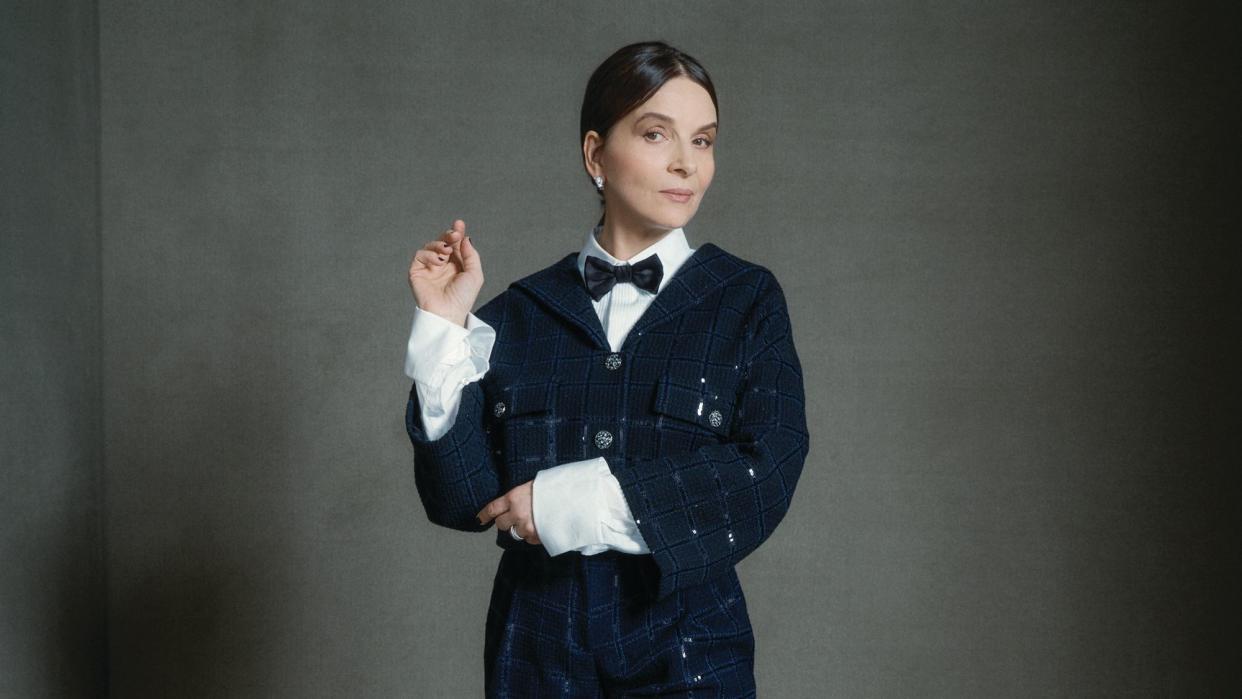
"Hearst Magazines and Yahoo may earn commission or revenue on some items through these links."
Getting to Juliette Binoche’s house feels a bit like walking into a fairy tale. Off an average Paris street, you head behind a nondescript building and across a cobblestone courtyard before going through a doorway and into an enchanted-looking garden with a winding path that leads to a freestanding stone house. Once inside, things are no less bewitching.
Binoche greets me wearing sweatpants and a V-neck sweater, but she still has the magnetic pull (not to mention luminous skin and tight jawline) of a movie star. A wood-burning stove crackles, her cat Bacchus naps in front of it, and we sit at a low coffee table dotted with bowls of lychees, chocolate, madeleines, and a pot of herbal tea.
It’s fitting to see the star—who has appeared in nearly 100 films, from art house fare like Olivier Assayas’s 2014 Clouds of Sils Maria to popcorn movies like Godzilla, and who won an Oscar for The English Patient—laying out this kind of spread, considering her latest project, The Taste of Things, may be one of the most hunger-inducing movies in history.
“It’s about passion,” she says of The Taste of Things, which is France’s Academy Awards entry for Best International Feature Film. But she could be talking about her entire career. “Sometimes I just throw myself into it.”
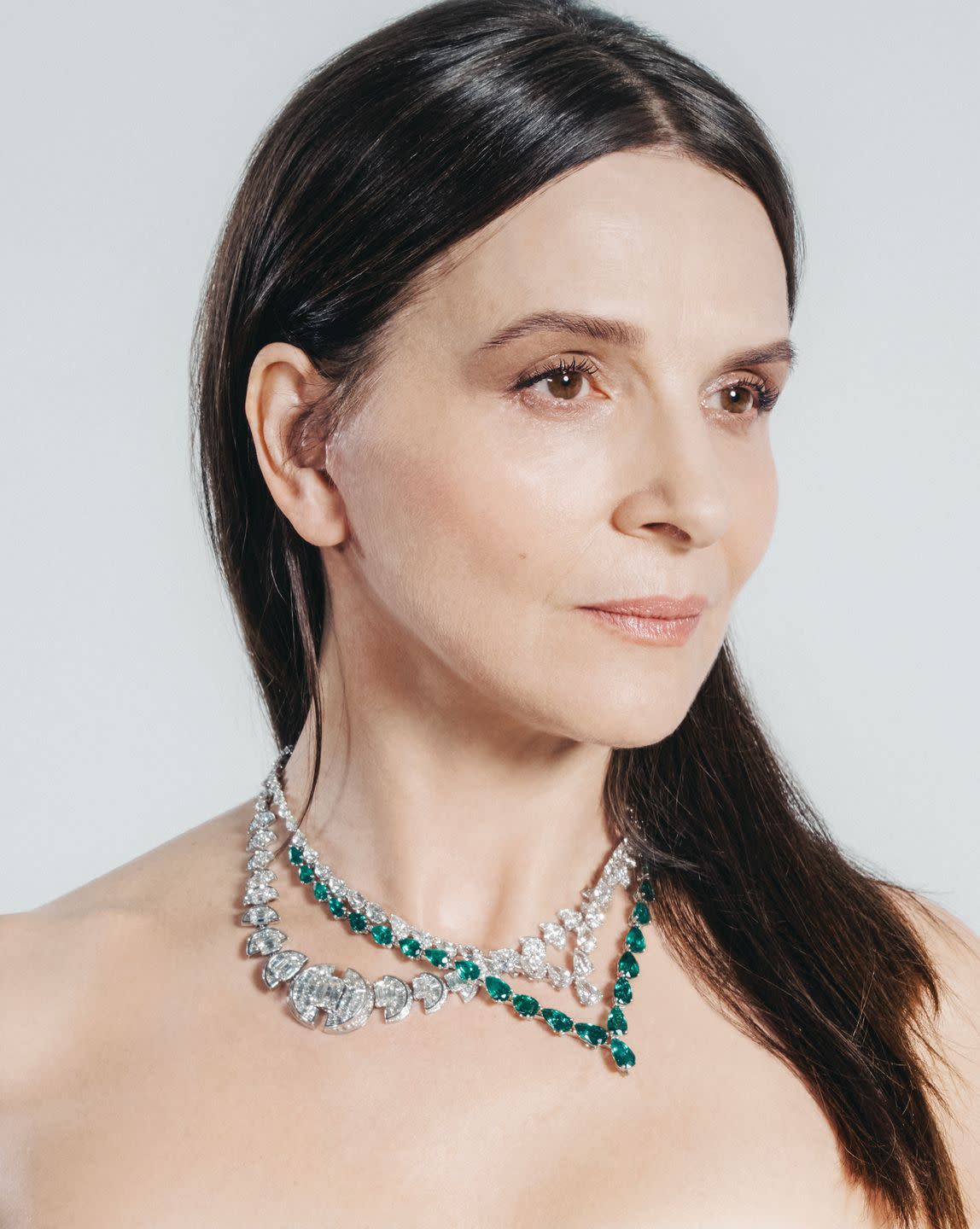
The Taste of Things is based on a cult 1924 Swiss novel by Marcel Rouff, about a gentleman gourmet chef named Dodin Bouffant living in a Loire Valley château. The movie is a sort of prequel to the novel, focusing on Dodin, played by Benoît Magimel, and Eugénie (Binoche), who is his cook, muse, occasional lover, and friend. Director Tran Anh Hung won the best director prize when the movie premiered at the Cannes Film Festival last May, and the film has been making waves on the awards circuit ever since.
Binoche was cast in the movie first, and when she heard Magimel had been offered the role of Dodin, she didn’t think he’d take it. The two actors had a history: They met in 1998 while making the French film Children of the Century (about another love affair, this time between the novelist George Sand and the poet Alfred de Musset). Binoche and Magimel had a daughter, Hana, together, but the couple never married, and they separated in 2003. They are co-parenting but have not, to put it politely, stayed close.
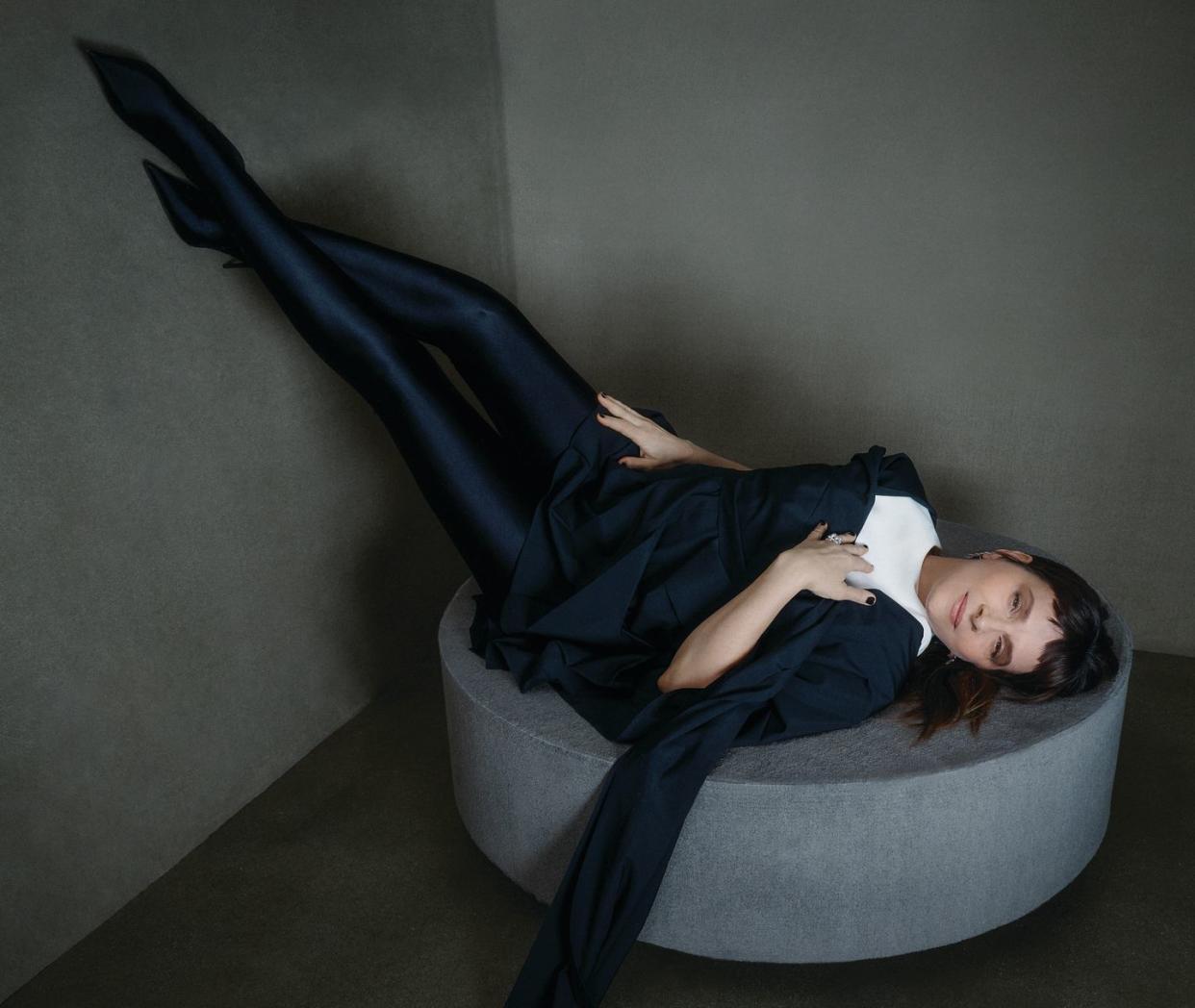
“Juliette thought, because of their past, he would not accept the role,” Hung says. “But when I showed him the script, he was immediately touched by the love story. They haven’t worked together for more than 20 years, and we aren’t used to seeing them onscreen, especially at this age.” (It’s a reunion that works. In its review of the film the Los Angeles Times said, “The rapport between the two leads is extraordinary, and those who know of Binoche and Magimel’s own past romantic history may find themselves especially moved by the tenderness of their onscreen reunion here.”)
The film opens with a long, balletic cooking sequence (picking carrots, searing chops, making a baked Alaska!) that is largely wordless but completely captivating. It will go down in history with Babette’s Feast and Big Night as a film that shows the pure beauty of people preparing food with love and intention. The way Eugénie cooks is akin to how Binoche views acting. “It’s more than the pleasure,” she says. “It’s for oneself. The joy is something that opens yourself to the world, to others, and feels a sense of being useful to the world.”
That opening scene sets the tone for an unforgettable story that’s equally about seduction and partnership. Binoche and Magimel must be great actors, or perhaps they worked through their issues onscreen. But that’s it for now. “We saw each other because we did quite a lot of interviews together, but having personal conversations, that’s another deal,” Binoche says with an it-is-what-it-is shrug.
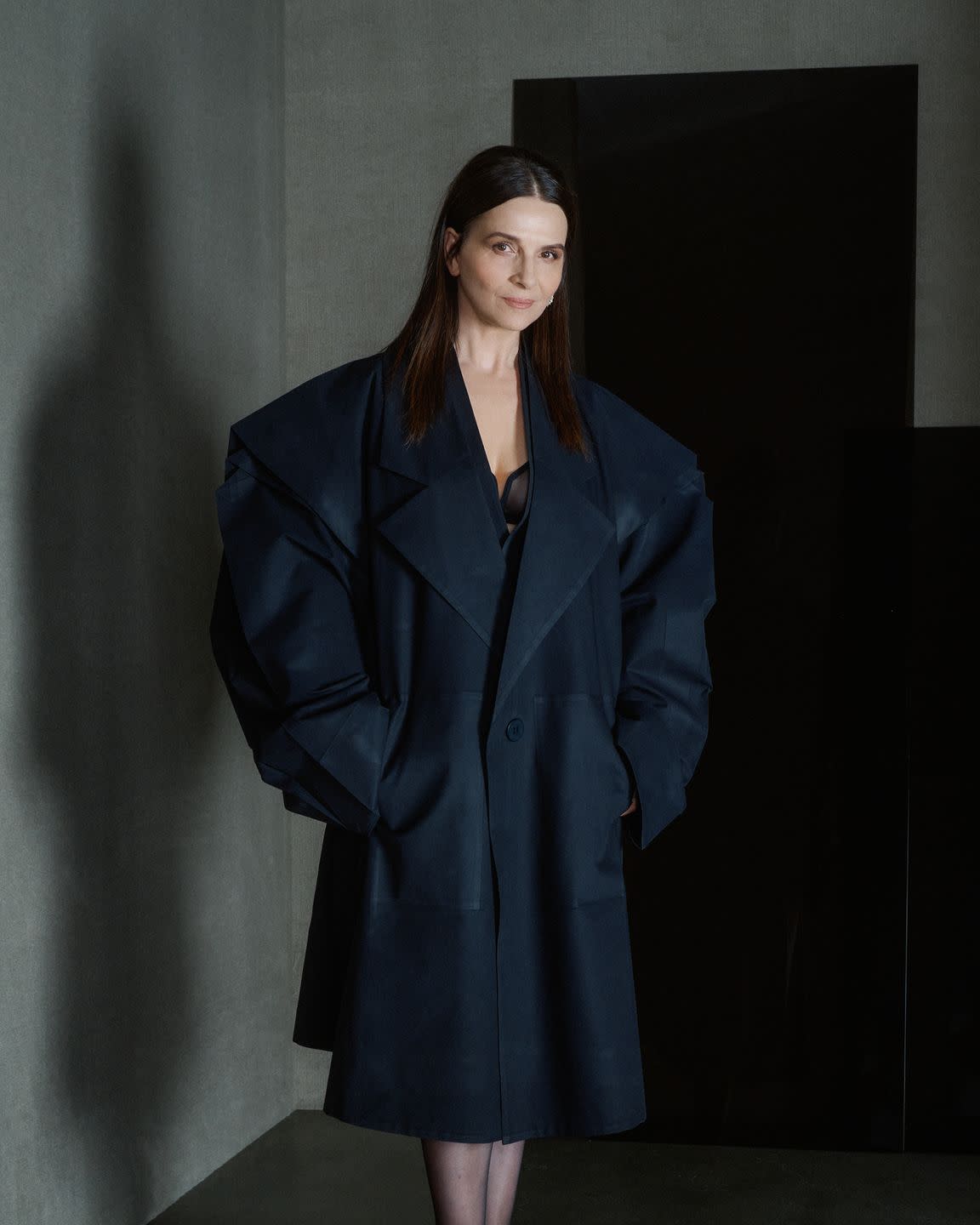
At a screening at the Cinémathèque in Paris last fall, Hana saw The Taste of Things for the first time. “I was surrounded by people who wanted to congratulate me, and at a certain point I couldn’t see Hana,” Binoche recalls. “Somebody said to me, ‘She’s quite overwhelmed. She’s downstairs in the restroom.’ ” When Binoche recounts this, she is misty-eyed and sounds choked. “So I went running to the restroom, and she was there. I could see that she was really touched. I had tears in my eyes and I took her in my arms, and we talked about it briefly. I wanted to give her time, so after two days I asked, ‘How did you feel about watching the film and seeing your parents play together again? Was it healing for you, do you think?’ And she said, ‘Absolutely.’ ”
I can hear Hana walking around upstairs; she lives in the house with Binoche and is getting ready to cook Indian food for her 24th birthday dinner party. (Binoche also has a son, Raphaël, with her previous partner, André Halle. She has never been married but says she always knew she wanted kids.)
One month after The Taste of Things wrapped shooting, Binoche began seven months of filming The New Look. The 10-episode series, airing now on Apple TV+, is almost the opposite of the languid Taste of Things. It takes place during the Nazi occupation of Paris during World War II and has a sprawling cast of celebrities: Ben Mendelsohn (Christian Dior), John Malkovich (couturier Lucien Lelong), Emily Mortimer (socialite Elsa Lombardi), Claes Bang (Spatz, a Nazi), and Glenn Close (Harper’s Bazaar editor-in-chief Carmel Snow).
As an actor, Binoche prefers playing fictional characters (“You’re more free,” she says), but no matter what, she has to connect to the character, to find links between herself and who she’s playing to tell her story with the richness and nuance and warmth she’s known for. “I remember Juliette coming in one morning saying she had dreamed she had been visited by Chanel. She felt the responsibility of taking on this part,” says Emily Mortimer, who shared all her scenes in The New Look with Binoche. “She made Coco Chanel a very earthy human being: funny, hot, earthbound. A woman with a will to survive.”
Chanel is someone the show’s creator, Todd A. Kessler (who created the series Damages), calls “maybe the most complicated person of the 20th century.” Binoche read a lot of biographies to prepare. “Oftentimes research can constrict a performance,” Kessler says, “but in the case of Juliette and her immense talent, it really freed the performance and provided access emotionally to Coco Chanel, who is a complicated individual faced with very challenging choices.”
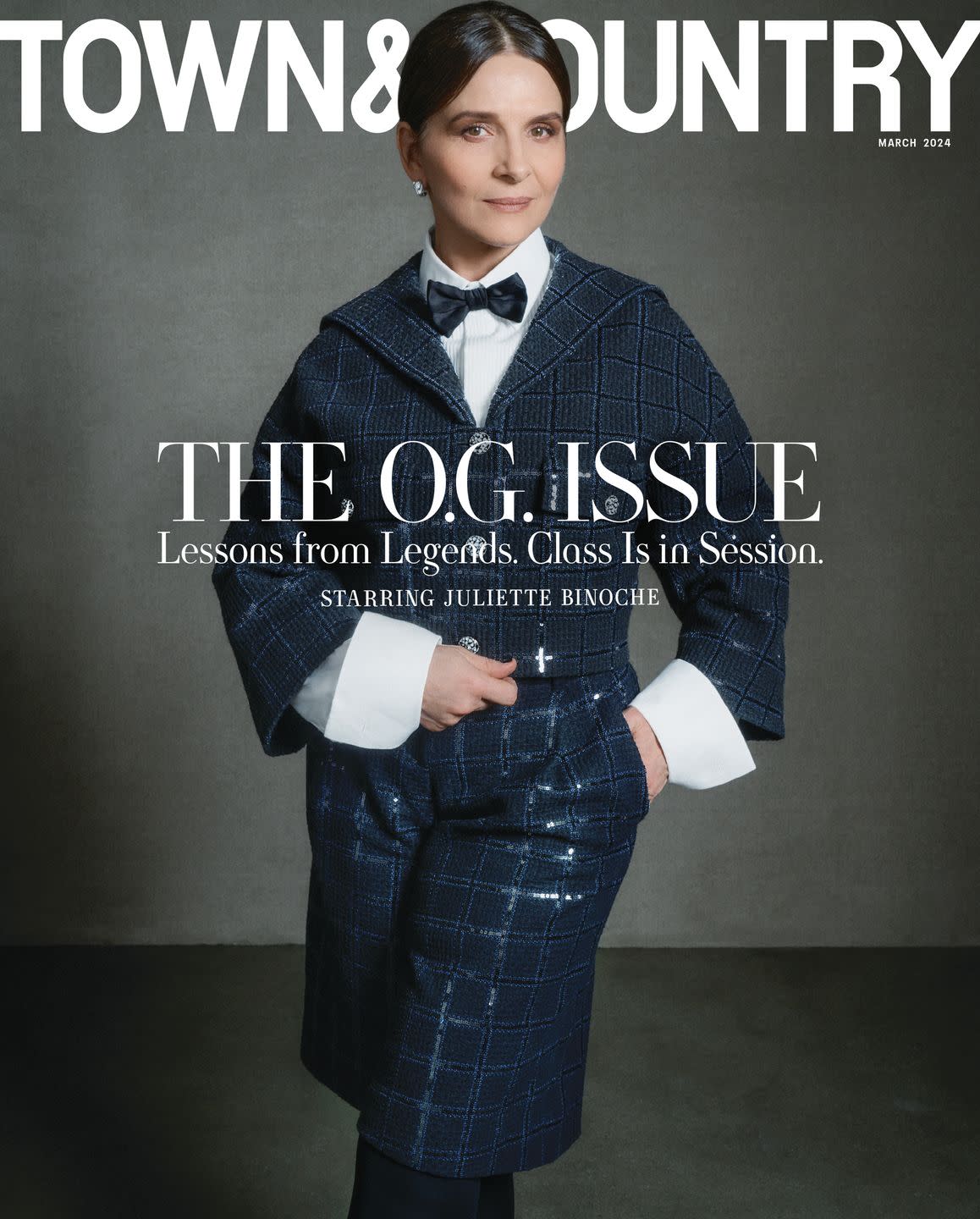
The series tries to show Chanel as a charming, ambitious woman who is trying to save her business while navigating the nuances of power during a tumultuous time. In an early scene Spatz takes Chanel to an abandoned apartment and tells her she can make a list of anything she might want. The apartment belonged to Jews, and the incident happened in real life.
Binoche sees the show as a contrast between two very different lives. “Dior comes from a very bourgeois background and, as a boy, he had everything: the beautiful house, the parents together, the gardens. Chanel was the opposite. She was the poorest of the poor. She saw her mother die when she was 11 years old. Her father abandoned the children, and she never saw him again.”
She plays Chanel as neither a valorized proto-girlboss nor a victim. “Her ambition was bigger,” Binoche says. “At the time, being a woman, you couldn’t just raise yourself to another rank in society. She had that energy of a survivor. And she wanted to be really in the cradle of creation. She wanted her freedom because she started from a very traumatic point. Yes, she is complex, but I think everybody’s complex.” According to her co-star Mendelsohn, “her Coco Chanel is powerful.” He mentions “the coldness and brutality that is needed to get the job done. She’s magnificent in this. I am a colossal fan, and just to see her come alive before you is stunning.”
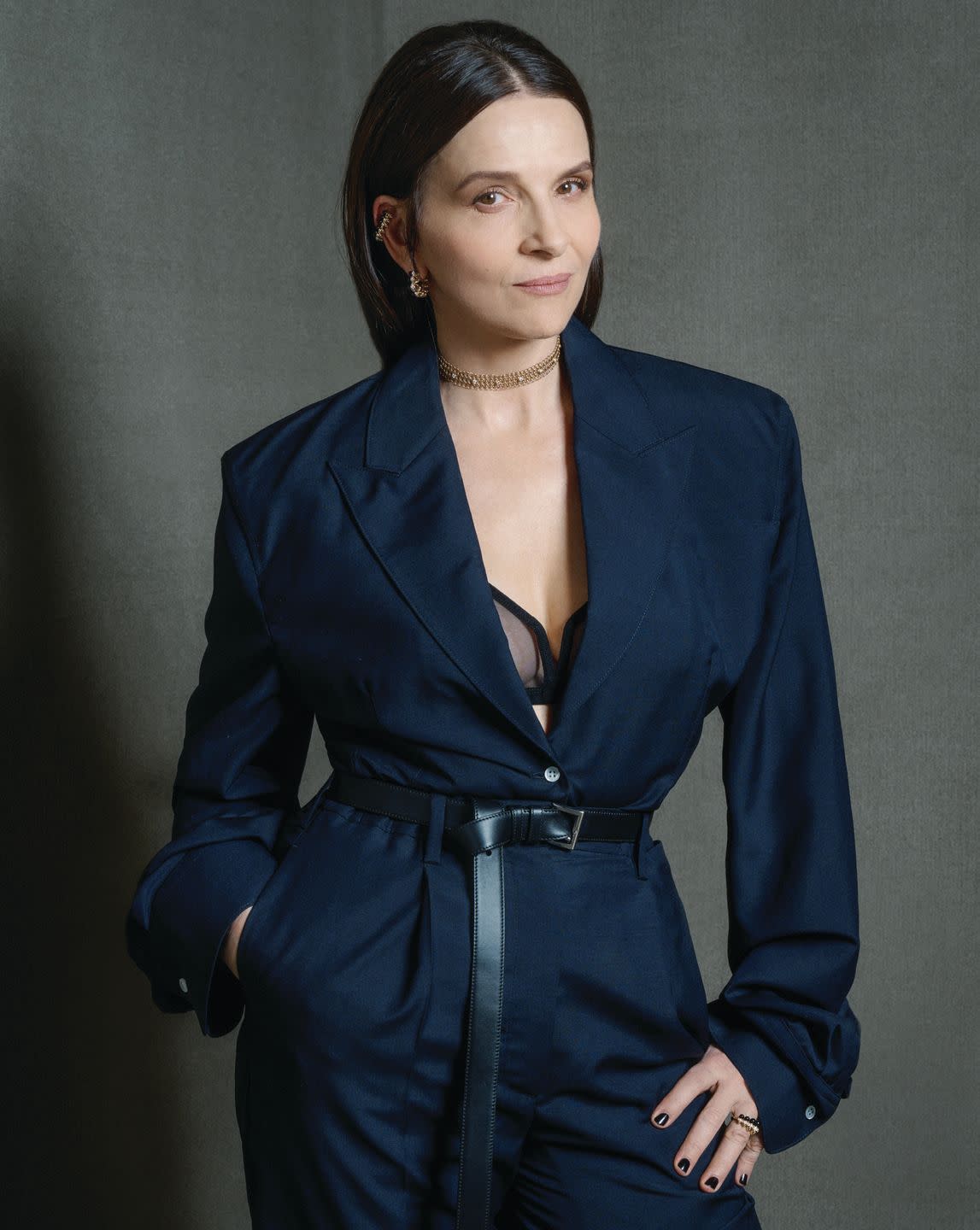
The characters of Chanel and Eugénie seem like opposite sides of the coin of French stereotypes. One is steely and impossibly chic, the other sensuous and generous with her pleasure. The two are united in Binoche’s mind in their devotion to craft. “You give something of yourself that is bigger and you forget yourself,” she says. “And because you forget yourself, you can reach that place of freedom.” She’s talking about acting, but she could be talking about her approach to life.
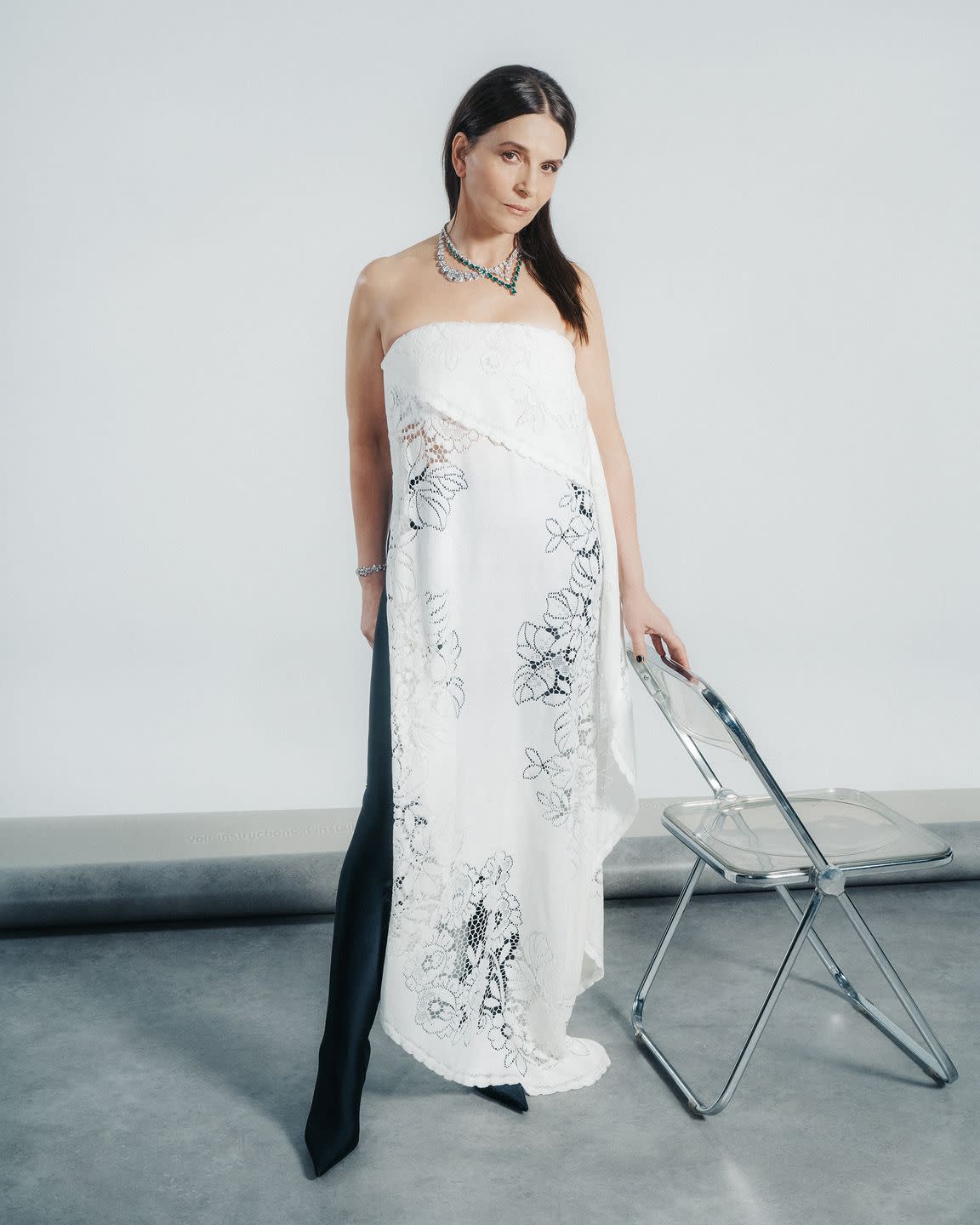
Binoche grew up in Paris and in the countryside with a French father and a half-French mother who was born in Poland. They were artistic multihyphenates who directed, acted, taught, and made fine art. After a brief stint at the Conservatoire National Supérieur d’Art Dramatique (the French Juilliard), she left school to work professionally. Her career took off in France thanks to acclaimed roles in Jean-Luc Godard’s Hail Mary, Jacques Doillon’s Family Life, and André Téchiné’s Rendez-vous—all three released in 1985. Her first English-language role was an arthouse hit, opposite Daniel Day-Lewis in Philip Kaufman’s 1988 adaptation of Milan Kundera’s novel The Unbearable Lightness of Being.
“You feel connected to the history of European movies with her,” Mortimer says. “Sitting next to her in the makeup trailer, you’re next to Louis Malle, Jean-Luc Godard, Leos Carax, and Claire Denis, who I’ve admired all my life. She was the least disappointing huge star I’ve ever had the pleasure to work with. You can smoke a cigarette in between scenes with her and laugh. She’s not at all grand.”
She may not be grand, but Binoche certainly has an effortless Gallic glamour about her. On her Instagram account (444,000 followers and counting) she posts casual selfies with famous friends like Shirley MacLaine, fashion shots from red carpets around the world (this season she favored custom Prada gowns and Courrèges), and scenes from the front row at Giorgio Armani. Her admirers range from Kristen Stewart to Ivo van Hove—she’s basically your favorite artists’ favorite artist—and Stewart once told the New York Times, “There’s something about her that has intimidating integrity.”
A starring role in a television show is a bit of a new venture for Binoche. Her previous forays were in the true crime series The Staircase and a cameo in the French series Call My Agent (on Netflix), in which she fends off the advances of a lascivious producer. “It was before the Harvey Weinstein episode, the trial and the big—how do you say—scandal?” Weinstein was instrumental to Binoche’s career, especially in America: He produced The English Patient and distributed many of her French-language films. “It’s always overwhelming. Because you don’t want people to suffer. You don’t take pleasure in the pain of people. But at the same time, the need to recognize what women are going through is very important.”
Binoche isn’t one to look backward. Instead she’s looking ahead to a lively year working on projects she cares deeply about. She will reunite with Ralph Fiennes, her English Patient co-star, on Uberto Pasolini’s The Return, which is based on Homer’s Odyssey. Fiennes plays Odysseus, returning to Ithaca after 20 years, and Binoche is his wife Penelope, who has been waiting for him the whole time.
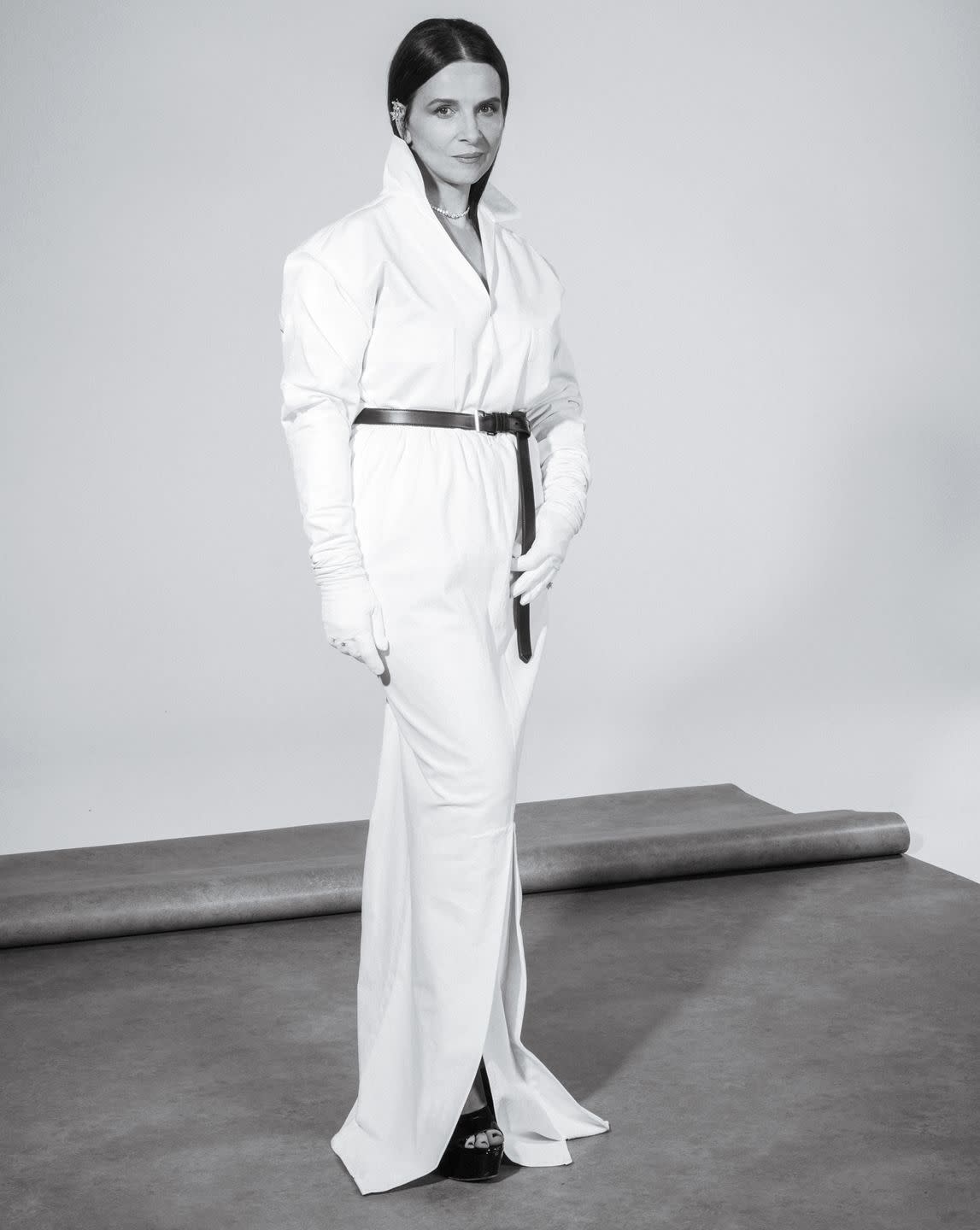
So why does she work so much? “I’m passionate. I love the work. I think I’m so privileged in being able to choose the films I do, and I do a lot of different things.” She points out that she’s done theater (notably Harold Pinter’s Betrayal on Broadway, in which she was nominated for a Tony Award) and dance. In 2008 she and British choreographer Akram Khan toured the world with their modern dance production In-I. She’s working on a documentary about it and is set to direct a short film. “It’s not always the same,” she says. “I like exploring inside, outside, outside, inside, because it’s a back-and-forth that allows you to grow, to deepen yourself.”
When asked what she does in her free time, she pauses for a really long time, at least 30 seconds of pure silence, and then bursts out laughing. That’s her answer. She has her kids, her mother (with whom she spends as much time as possible), a place in southwestern France to go to get away from it all. She’s single and doesn’t even really date.
She’s so busy she doesn’t know what she will do or where she will be when she turns 60 in March. “For my 50th birthday I did a big thing at my place. I don’t know. I don’t even know what I’m doing today. We might be at the Oscars ceremony the day after with a film. I’ll see how I feel,” she says with a smile. She carefully peels the skin off a lychee and pops it into her mouth. Then she adds, “I’m not frightened of it.”

Photographs by Sebastian Kim
Styled by Jonathan Huguet
Hair by Ericka Verrett for R+Co. at A-Frame Agency. Makeup by Odile Subra. Nails by Erin Leigh Moffett for Orly at Art Department. Set design by Evan Jourden. Production by Viewfinders LA
In the top image: Chanel jacket ($9,850) and Bermuda Shorts ($3,350); Giorgio Armani shirt ($1,195) and bow tie ($195); Wolford tights ($55); Cartier earrings ($44,600) and ring ($17,700)
This story appears in the March 2024 issue of Town & Country. SUBSCRIBE NOW
You Might Also Like
